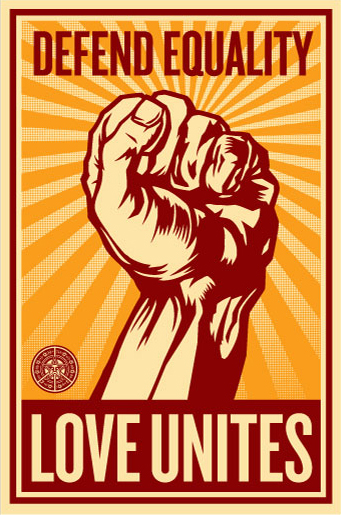
This blog entry contains 3 things:
1. 5 things that have changed my (the Editor of this blog) life
2. 5 things I hope for and strive for in 2009
3. *An article* about Obama, economics and ethics.
Please submit something about what you hope for, dream for, strive for, and what 2008 meant for you!!!!
Ellen Reiss: Getting beyond a culture of contempt
01:00 AM EST on Monday, December 29, 2008
NEW YORK
THE ELECTION of Barack Obama is important not only because the American people have chosen a person of color to be our president. That fact, certainly, is a tremendous, historic victory for ethics. But the election is also an important ethical victory because the massive use of lies didn’t work. And the various scare words didn’t scare. And it’s important because of something to be seen in an American poem about another election.
Vachel Lindsay, in his poem "Bryan, Bryan, Bryan, Bryan," writes about the election of 1896, in which William Jennings Bryan ran against William McKinley. He describes the feeling millions of people had about Bryan, and very much young people. Bryan seemed to represent the rights of Americans who were not rich; he seemed to represent their hopes and an America that could belong to all the people, not just the moneyed.
That election was, of course, different from the current one; and besides, Bryan lost. But there is this likeness: the feeling that both Bryan and Obama stood for something kind, against, as Lindsay puts it, "the mean and the cold."
There are lines like these, about Bryan: "He brought in tides of wonder, of unprecedented splendor, / Wild roses from the plains, that made hearts tender." Lindsay describes the huge crowds at Bryan rallies, because people felt that this person stands for an America that is kinder, that is truer to herself. Lindsay writes of being at a Bryan rally at age 16, in Springfield, Ill.:
And Bryan took the platform.
And he was introduced.
And he lifted his hand
And cast a new spell.
Progressive silence fell
In Springfield, in Illinois, around the world.
A person can symbolize something to people that they don’t wholly understand and that he does not live up to. Had Bryan been elected, he might not have lived up to people’s hopes. Barack Obama was elected.
And it is necessary for America to see, and for him to see, what it would mean to meet America’s hopes, which are also desperate needs.
For our presiden! t-elect to be a good president, for him to succeed, he must want, passionately, to answer this question, articulated by Eli Siegel: What does a person deserve by being a person?" And he must make sure the economy of America is based on a true answer to that question.
In 1970 Mr. Siegel, founder of the philosophy Aesthetic Realism, began his series of Goodbye Profit System lectures. He explained that the world had reached the point when economics based on a selfish, ugly, unethical way of seeing one’s fellow humans no longer worked. While the profit system might drag on for quite a few years, and sometimes be given a flashy façade, it was a mortally ailing thing.
Week after week, using documents of the past and present -- of economics, history, literature and human feeling -- he explained why we had come to the time when "there will be no economic recovery in the world until economics itself -- the making of money, the having of jobs -- becomes ethical; is based on good will rather than on the ill will that has been predominant for centuries."
The profit motive -- the seeing of people in terms of "How much money can I get out of you? How cheaply can I employ you? How can I use you to feather my own nest?"-- was always ugly. It made for child labor; for miserable working conditions, with their ensuing occupational diseases and maimings; for poverty wages. But by 1970, the ill will of the profit motive was not only ugly: It was inefficient; it was less and less able to bring in the desired returns.
This year, we have some of the results of the effort to keep that mean way of using people going: We have an American financial collapse, millions of Americans unemployed, and many more about to be -- with all the terror and suffering that includes.
The incoming president, and Congress, and the American people need to see that tinkering around with an unethically based economy will not work.
We now have to have economics based, not on profit, but on ethics, justice and usefulness.
Let’s take the aut! omobile industry of America. As I comment on it, I’m not speaking in terms of particular legislative or executive decisions, but in terms of ethics. It is, as The Wall Street Journal reported (Nov. 8-9), in such a "deepening crisis" that "Washington may have to step in to finance a historic downsizing of the U.S. auto industry."
Letting this industry, which Mr. Obama called "the backbone of American manufacturing," die is unacceptable. But pouring vast quantities of taxpayer money into auto companies based on providing profit to stockholders, is now repugnant to the American people, and furthermore won’t work.
With competition from Japan, South Korea, Sweden, Germany and more, there is an expense that must be eliminated from this "backbone of American manufacturing" for it to succeed. That expense is profit for individuals who didn’t do the work. The U.S. auto industry cannot sustain itself and pay its workers’ benefits and pensions, while at the same time paying out those completely unnecessary extras --emoluments to non-working stockholders.
If the people of America are going to bail out auto companies, there is no reason why we ourselves, or the auto workers, cannot be the companies, own the companies. The people of America need autos. The people of America can produce autos. Autos simply can no longer be produced in America on the basis of private profit, with money from their sales going into the pockets of stockholders. Once they could -- when car manufacturing took place pretty much in the U.S. alone.
What this "backbone of American manufacturing" now needs to be based on is not the scare word used during the presidential campaign. What it needs to be based on is, as Mr. Siegel once put it, deep American decency.
The election of 2008 was a magnificent victory against racism. Yet as we know, racism still exists, in all its filth. The next president and the American people need to learn from Aesthetic Realism what racism comes from. And they need to see that profit economics arose from the very s! ame sour ce in the human self. Both racism and the profit motive come from contempt: "the lessening of what is different from oneself as a means of self-increase as one sees it," as Eli Siegel put it.
To illustrate this fact, I’m going to quote from a periodical of nearly 100 years ago, which Mr. Siegel used in several of his lectures.
In the Aug. 18, 1910 issue of the Independent magazine, there is an article by the important writer and sociologist W.E.B. Du Bois. He describes being looked down on, because he was black, by an impoverished little girl who was white:
. She was stealing a?.?"She was a poor little waif of six or seven years. . ride on an Eighth Avenue furniture van and spied me on a passing street car. She stuck out her tongue and jeered and made every contortion of countenance to show her personal disapproval of my kind and the superiority of hers.
"Poor little thralled thing! It was not enough that she should be prisoned by poverty and ignorance; this great nation must needs chain her with race prejudice."
Du Bois is eloquent and nobly sympathetic. But we need to learn the reason . with race prejudice" is?.?the little girl could welcome being "chain[ed] . that there is a desire in the self to be big by seeing someone else as less. And this ordinary yet foulest desire in the human self is the only reason a nation could feel it is somehow tolerable for some children to be born poor and others rich.
We have had a great, historic election. Now for America to fare well, justice to every man, woman, and child must be the very basis of our economy.
Ellen Reiss is class chairman of Aesthetic Realism.

























